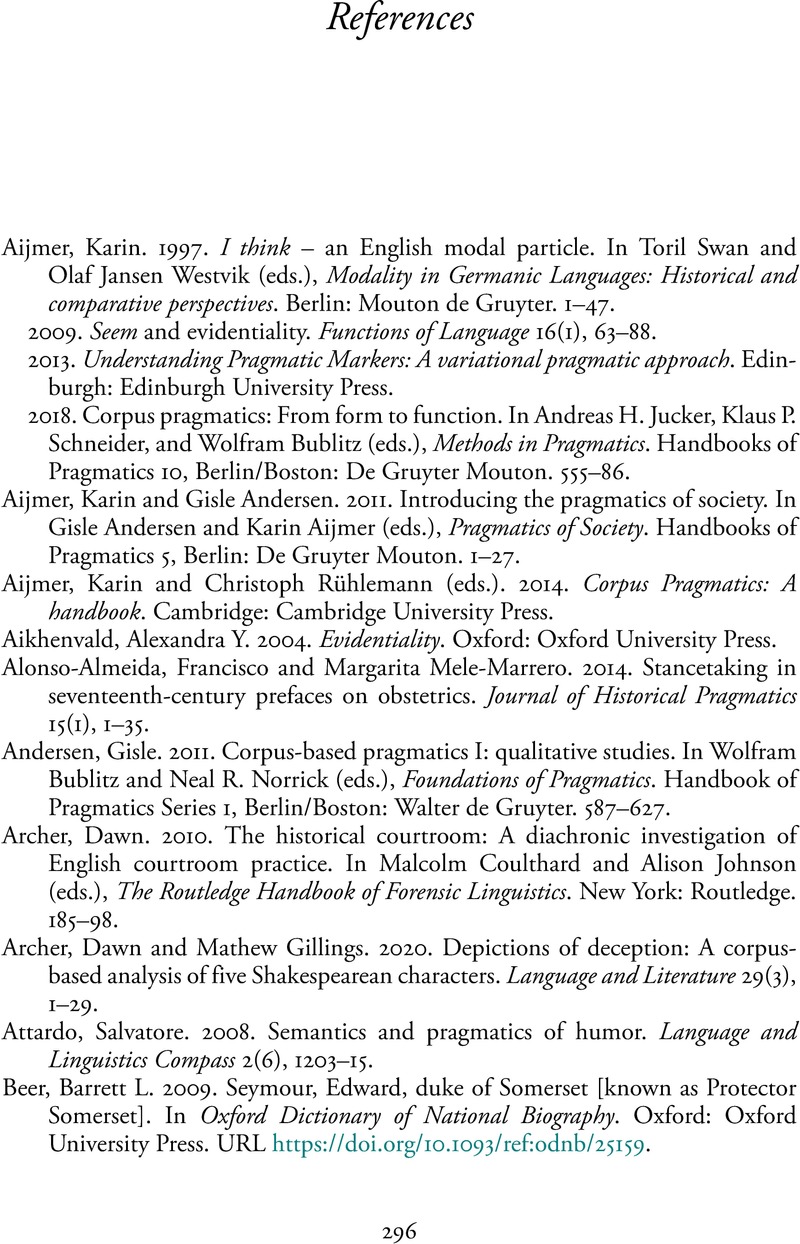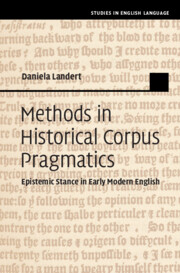References
Published online by Cambridge University Press: 22 February 2024
Summary

- Type
- Chapter
- Information
- Methods in Historical Corpus PragmaticsEpistemic Stance in Early Modern English, pp. 296 - 311Publisher: Cambridge University PressPrint publication year: 2024

